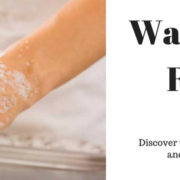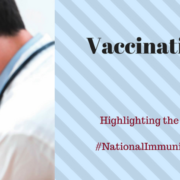Wash, Rinse, Repeat!
The little things. It’s always the little things that are often overlooked, but can carry the most importance. Fresh air. Cold pillows. A good breakfast. Washing your hands. Few have the impact of the latter.
Washing your hands is one of the most important steps to not only protecting your own health, but also prevention of germ spread and other bacteria to others. This week is National Handwashing Awareness Week, and with the flu and many other sicknesses very prevalent during this time, now is as good a time as any to discuss the importance of handwashing, and how it’s relative to prevention.
For a little context on how important this topic is, here are a few facts, courtesy of the CDC, related to handwashing:
- Washing hands with soap and water can reduce diarrheal disease-associated deaths by up to 50%
- Handwashing can reduce the risk of respiratory infections by 16%
- A large percentage of foodborne disease outbreaks are spread by contaminated hands, which could be greatly reduced by handwashing.
- The use of alcohol gel hand sanitizer in classrooms can result in upwards of 20% reduction in absenteeism due to infection.
- Reducing the number of infections through handwashing may help prevent the overuse of antibiotics (and eventual antibiotic resistance) often prescribed for these health issues.
Looking for more reasons why handwashing is important? Look no further than the main culprit of sickness: germs. As the CDC describes, feces is a main source of germs, like Salmonella and E.coli that spread many respiratory infections such as, hand-foot-mouth disease and adenovirus to name a few. These germs get onto your hands a variety of ways, including:
- After toilet use
- Changing diapers
- Blowing your nose
- Handling raw meat
- Taking out garbage
- Petting animals
- Caring for sick people
These are common, everyday activities that people do, yet if people don’t take the initiative to wash their hands, germs will stay on the surface of your hands for hours. With frequent touching of the body (i.e. touching eyes, nose, and mouth) coupled with germ pile up on your hand surface, it gets you sick, and even worse, it transfers to other objects that will get others sick.
So, what can you do? Wash your hands multiple times throughout the day and follow standard handwashing techniques:
- Wet – Wet your hands with clean water, then apply soap
- Lather – Rub your hands together with the soap, making sure to get the back of your hands, between fingers, and under the fingernails
- Scrub – Scrub your hands for at least 20 seconds
- Rinse
- Dry – Air dry or use a clean towel
- *Tip* For public restrooms, shut the faucet off with a paper towel, and use your shoulder (or another towel on the knob) to open the door
If you’re not near a sink, hand sanitizer is a great substitute. However, if your hands are visible dirty and greasy, this will not be as effective in eliminating the high number of germs. It’s also important to note to avoid the use of antibacterial soap, due to the dangers of triclosan. As the Mayo Clinic describes, although triclosan is an active ingredient in making some soaps antibacterial, excess use can cause small amounts to be absorbed by the skin, which may lead to a damaged immune system and/or antibiotic resistance.
In closing, sometimes it’s the little things that have big impact. Don’t risk getting sick, especially during peak flu season, by not washing your hands. Your R-Health doctor hand-washes every time they see you, so take the lead and follow suit. Or use our R-Health hand sanitizer.


![Back 2 [Healthy Food]](https://www.r-health.md/wp-content/uploads/2017/09/Back-2-Healthy-Food-180x180.png)
![[Healthy] Thanksgiving! (1)](https://www.r-health.md/wp-content/uploads/2017/11/Healthy-Thanksgiving-1-180x180.png)









Leave a Reply
Want to join the discussion?Feel free to contribute!